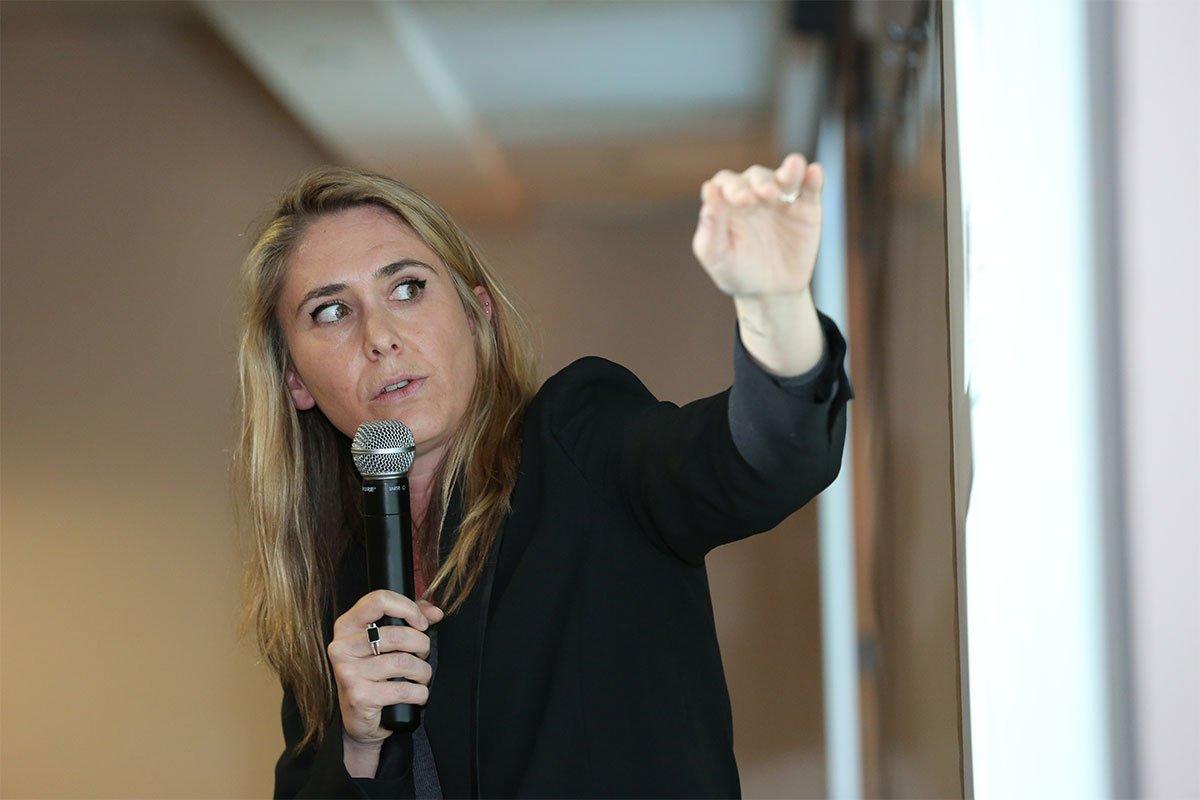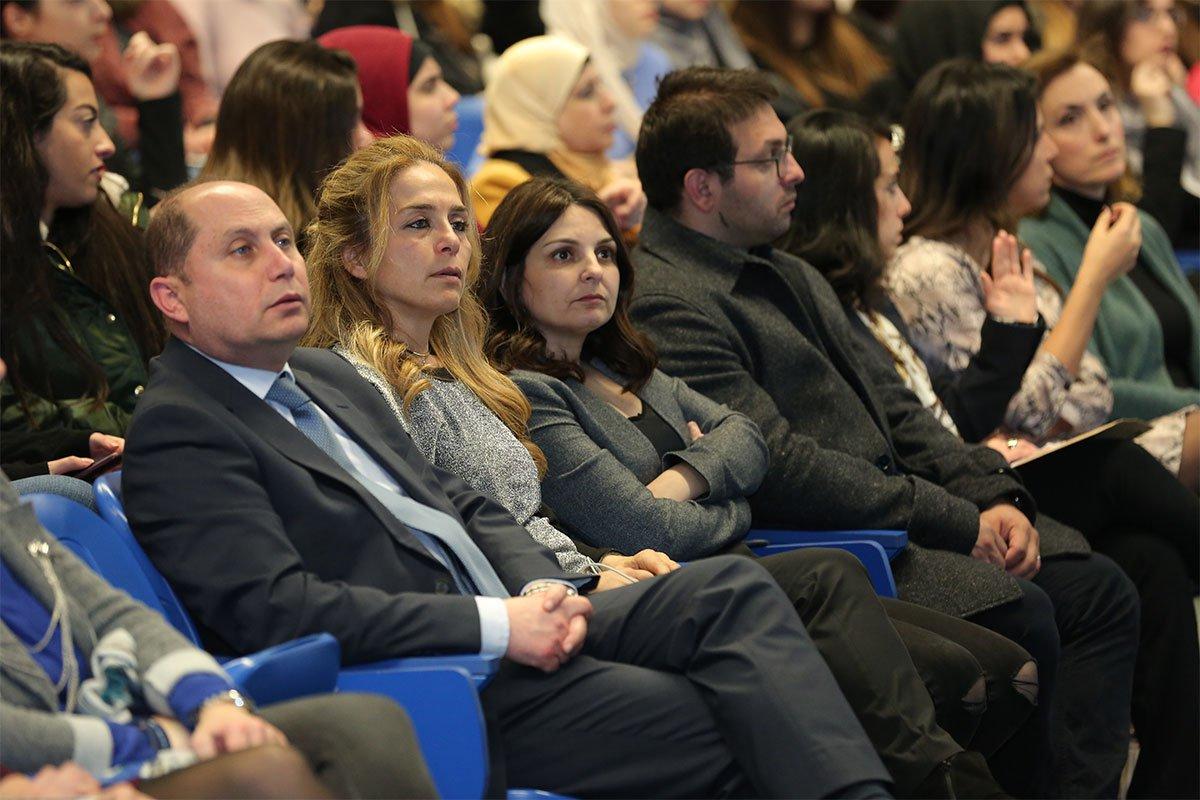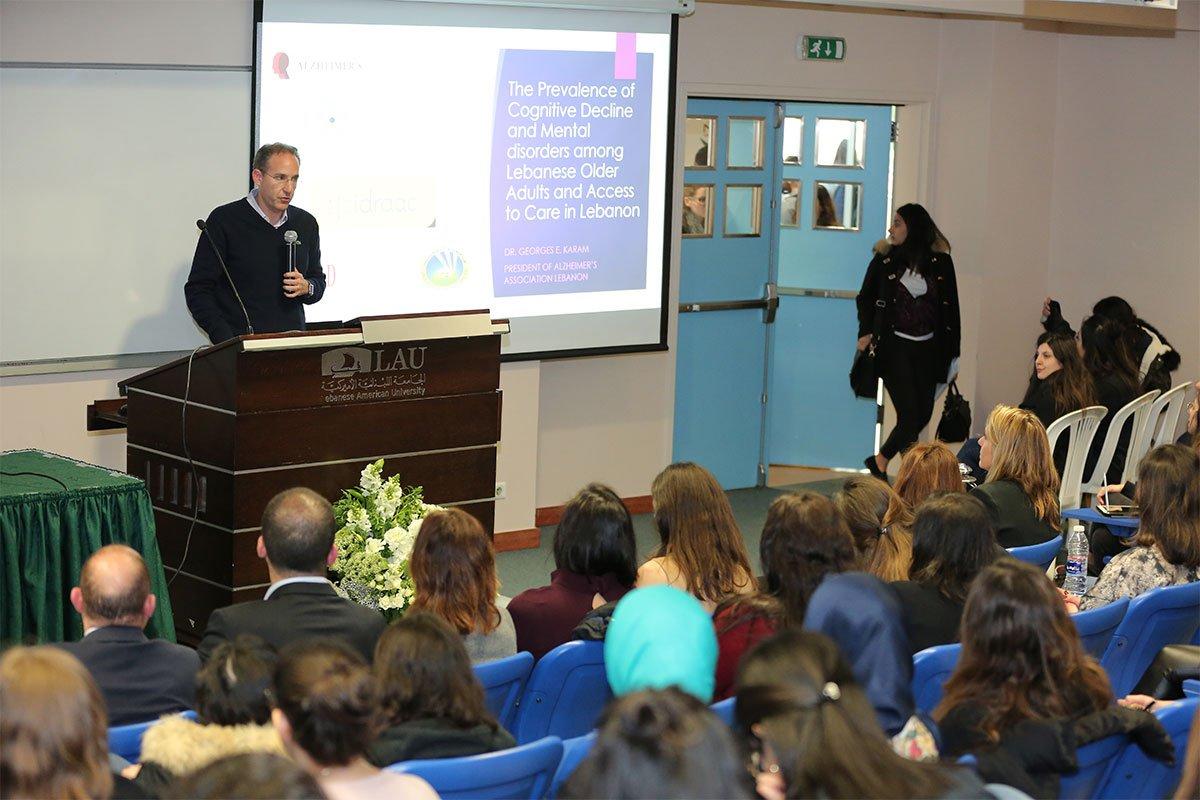The Impact of Nutrition on Healthy Aging
A symposium held by LAU’s nutrition program examines the correlation between diet and physical and mental wellbeing.
In a country with the highest rate of older adults in the region, awareness and prevention of mental diseases are a priority, cautioned specialists at a symposium on Diet and Healthy Aging held at LAU.
Organized by the Nutrition Program in the Department of Natural Sciences, the conference addressed the impact of nutrition on modulating the aging process and its associated diseases – such as Alzheimer’s and other forms of dementia – and preventing physical decline.
In 2015, the Central Directorate of Statistics of the Ministry of Planning in Lebanon estimated the percentage of older adults to be at 11.5 percent, and expected to reach about 31 percent in 2050, accounting for approximately one-third of the Lebanese population.
“Nowadays, life expectancy among Lebanese older adults is around 80 years, which is the highest in the MENA region,” said Interim Dean of the School of Arts and Sciences Constantin Daher.
However, “in the case of our country,” he added, “many older adults don’t have access to medical coverage after retirement and must pay for it from their own pockets, further complicating the situation.”
Believing that mental decline is directly linked to the quality of nutrition during a lifetime, keynote speaker and Senior Researcher at INSERM U1219 Cecilia Samieri discussed how diet can influence the etiology of brain diseases and in particular Alzheimer’s and dementia.
As the brain’s cognitive performance begins to decline at the age of 25-30, she said, lesions begin to accumulate in the brain. These two processes – the decline of cognitive functions and the formation of lesions – over time cause the brain to become fragile, eventually leading to dementia in two percent of 65-year-olds, and in up to 15 percent of those over 80.
Dr. Samieri stressed the need for early prevention and the importance of understanding “the best target pathways to tackle preventive strategies.”
“Many preventive strategies have targeted a single pathway in dementia, while a preventive strategy that can target multiple pathways would be more efficient.” This is why nutrition is important in this context, she added, noting that a Mediterranean diet and nutrients such as B vitamins and omega-3 polyunsaturated fatty acids, found mainly in fish, help in preventing dementia and Alzheimer’s.
Assistant Professor at the Department of Psychiatry and Clinical Psychology at St. George Hospital University George Karam, in turn, spoke about the prevalence of cognitive decline and mental disorders among Lebanese older adults.
Dr. Karam, who is also a member of the Institute for Development, Research, Advocacy and Applied Care (IDRAAC) referred to a study conducted by IDRAAC in association with the WHO and Harvard University which revealed that nine percent of older Lebanese will suffer from depression during their lifetime, and 12.3 percent from anxiety, similar to the worldwide prevalence.
“In effect, one in six of older adults in Lebanon will suffer a form of mental illness,” he said, pointing out that 80 percent of those will not receive treatment due to lack of awareness.
Regarding dementia – 47 million cases worldwide in 2015 – the number is projected to reach 131 million in 2050. The staggering number becomes all the more alarming, said Dr. Karam, because 70 percent of these new cases will be concentrated in low income and developing countries such as Lebanon.
That prevention is better than treatment was reiterated by event organizer and LAU Visiting Assistant Professor of Nutrition Dr. Berna Rahi and Assistant Professor of Biochemistry Sama F. Sleiman, both of whom underlined the importance of safeguarding physical and mental wellbeing.
Dr. Rahi called for “achieving adequate intakes with a balanced diet in order to add life to years instead of years to life.” Studies, she said, had clearly established a link between nutritional strategies and “decreasing the risk of chronic diseases, retarding decline of physical and cognitive function and, optimizing psychological health.” For Rahi, too, a Mediterranean diet is a good strategy to mitigate the normal physiological changes that occur with age, and therefore to maintain physical health and independence.
In her presentation on the effects of physical activity on brain health, Dr. Sleiman focused on lactate, which in effect, “promotes resilience to stress.”
For her part, Clinical Assistant Professor of Pharmacy Practice at LAU Rafah Aboulhosn spoke about the role of polypharmacy – the administration of more medications than are clinically required – in healthy aging of older adults.
While polypharmacy “was inevitable as we age,” she said, “there are many risks related to it,” among which are more drug-drug/drug nutrient interactions, increased risk of frailty, and adverse drug reactions. The solution was minimizing polypharmacy through the process of deprescribing, which “should be slow and continuously monitored by a specialist.”


